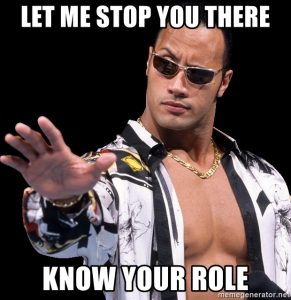Nine times out of ten if a person is indicted in a Federal criminal case, they will most likely be charged in a conspiracy. Generically, a conspiracy is nothing more than an agreement to commit some type of criminal act. 18 U.S.C. 371 is the most general form of conspiracy and requires the following to be proven in the 11th Circuit:
- The existence of an agreement to achieve and unlawful objective;
- A defendant’s knowing and voluntary participation in the conspiracy;
- the commission of an overt act in furtherance of the conspiracy.
The overt act need not be committed by you, any conspirator in the agreement can commit the overt act. United States v. Isaacson 752 F.3d 1291, 1303 (11th Cir. 2014). Why does the Department of Justice wield the sword that is a conspiracy charge? Because it’s easy to prove and under our Federal Sentencing Guidelines it can allow them to increase your potential penalty for relevant conduct. In a fraud case they can add more intended loss monies. In a drug case they can add more drug weight due to the reasonably foreseeable actions of co-conspirators. However, while a conspiracy charge most definitely provides a benefit to the Feds, being one of many other actors might allow for a mitigating role argument under Federal Sentencing Guideline 3B1.2.
Federal Sentencing Guideline 3B1.2 analyzes your role in the criminal act and if such a role is considered “minimal,” you could benefit by a four level reduction in your total offense level. If your role is considered to be “minor,” you could still benefit by a two level reduction. Lastly, if your conduct falls somewhere in between, you might be able to split the difference and receive a three level reduction. The determination as to whether a mitigating role reduction applies is primarily a fact based determination. The determination whether to apply subsection a minimal, minor, or an intermediate adjustment, is based on the totality of the circumstances of the allegation and involves a determination that relies heavily on the facts of the particular case.
In determining whether to apply an intermediate adjustment, the court should consider the following non-exhaustive list of factors:
(i) How well the defendant understood the scope and structure of the criminal activity;
(ii) How much the defendant participated in planning or organizing the criminal activity;
(iii) If the the defendant exercised decision-making authority or influenced the exercise of decision-making authority;
(iv) the nature and extent of the defendant’s participation in the commission of the criminal activity, including the acts the defendant performed and the responsibility and discretion the defendant had in performing those acts;
(v) How much did the the defendant benefit from the criminal activity.
Federal Criminal Attorneys will often make a pitch for a minor role reduction in drug cases where they might represent a drug courier. One argument we make is that because our client is not on the polar ends of the conspiracy and is but a fungible cog in the scheme, they should be considered for mitigating role. In other words, because the individual is not a manufacturer of the drug, using special skills, dangerous security measures to protect the manufacturing process, or in depth planning for transfer down the chain of delivery, they have a lesser role. Similarly, because they are not an end distributor, skilled in selling the drug, cutting the drug to increase their available product, or deciding to whom and where to sell, the role is lesser than an end distributor. Much akin to a common carrier of goods from legitimate producers and distributors, the role of the individual moving the product is fungible. No real skill is required and our Federal criminal lawyers have yet to see a drug courier possess a proprietary interest in the actual product. In other words, they are being paid for their service with no ownership interest in the drug product. Couriers are a dime a dozen and for that reason, they are generally better candidates for mitigating role reductions.
A similar argument could be made in a check cashing fraud scheme. If the individual being sentenced was limited in their role to driving someone to and from banks to execute the fraud, while their role in driving to the banks might be essential, their culpability is lesser than one who actively commits the fraud. As such, their role might be considered minor, minimal, or in between.
If you or a loved one are facing Federal criminal charges, contact Tampa Federal Criminal Lawyer Jason Mayberry today at 813-444-7435 for a free consultation.
 Tampa Criminal Lawyer Blog
Tampa Criminal Lawyer Blog


